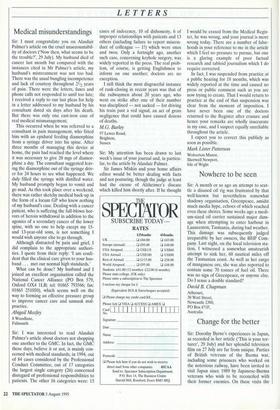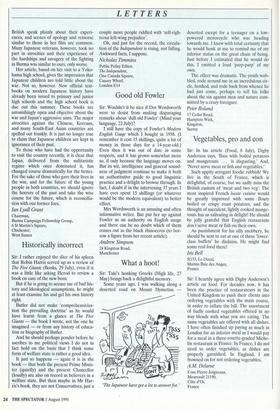Change for the better
Sir: Dorothy Byrne's experiences in Japan, as recorded in her article (`This is your tor- turer', 29 July) and her splendid television film on 27 July are far from unique. Parties of British veterans of the Burma war, including some prisoners who worked on the notorious railway, have been invited to visit Japan since 1989 by Japanese-Burma veterans who wish to be reconciled with their former enemies. On these visits the British speak plainly about their experi- ences, and scenes of apology and remorse similar to those in her film are common. Many Japanese veterans, however, took no part in atrocities and their experience of the hardships and savagery of the fighting in Burma was similar to ours, only worse.
Her article, based on her visit to a Yoko- hama high school, gives the impression that Japanese children are told little about the war. Not so, however. New official text- books on modern Japanese history have already been issued to primary and junior high schools and the high school book is due out this summer. These books are astonishingly open and objective about the war and Japan's aggressive aims. The major atrocities against the Chinese, Koreans, and many South-East Asian countries are spelled out franldy. It is just no longer true to claim that Japanese children are kept in ignorance of their past.
To those who have had the opportunity to visit the country recently, it is clear that Japan, delivered from the militaristic regime which once dominated it, has changed course dramatically for the better. For the sake of those who gave their lives in the war, and for the future of the young people in both countries, we should ignore the horrors of the past and take the wise course for the future, which is reconcilia- tion with our former foes.
Ian Lyall Grant Chairman, Burma Campaign Fellowship Group, 6 St Martin's Square, Chichester, West Sussex



















































 Previous page
Previous page